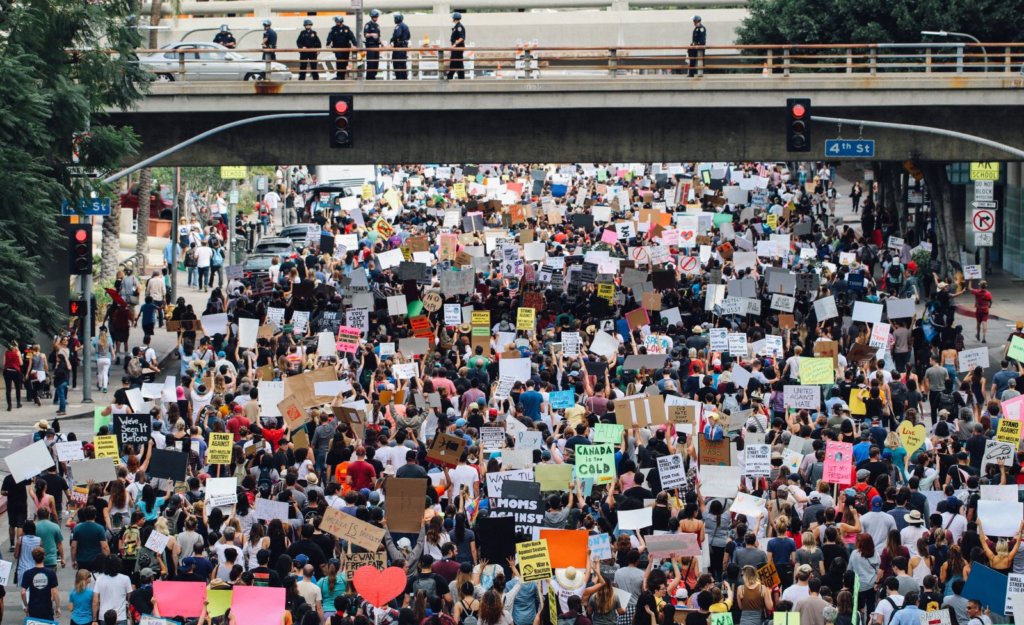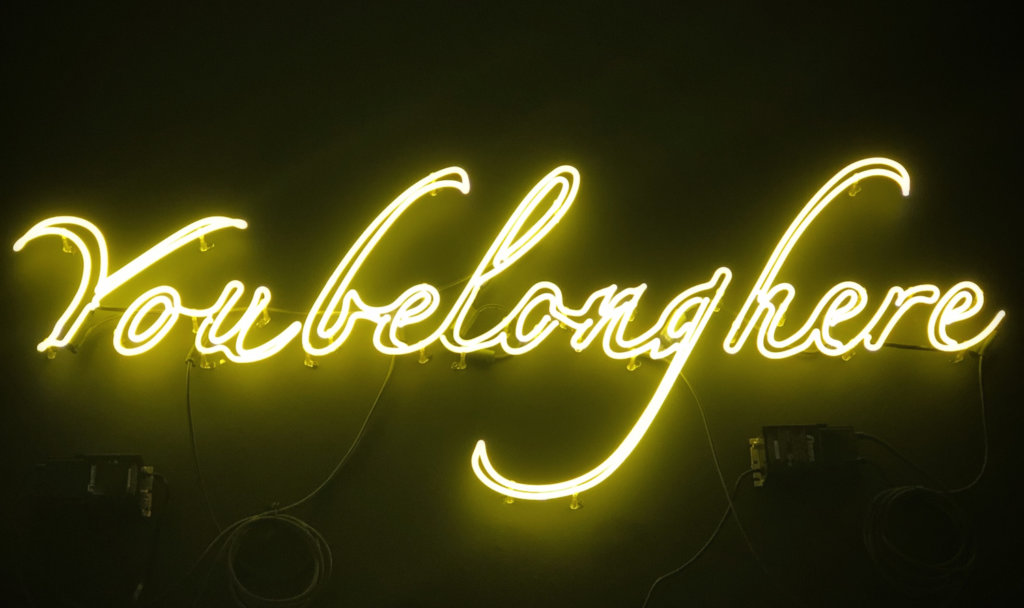I have to admit I’m feeling rather spiteful and vindictive. I’m pissed off at the hypocrisy of Mitch McConnell and his ilk regarding replacing Ruth Bader Ginsburg’s justice seat. I’m livid Breonna Taylor’s murderers – Brett Hankison, Myles Cosgrove, and Jonathan Mattingly – were not punished sufficiently for their crimes. I’m angry and frankly scared that Donald Trump will refuse to cede power if he’s voted out. Some vigilante justice sounds mighty appealing right now. However, I also remind myself what my spiritual philosophy says about justice.
First off, it’s a law of nature that for every action there’s an equal and opposite reaction. Actions have consequences, even if they’re not expressed right away. For instance, my spiritual teacher was on a walk with someone when they passed by the house of a Brahmin who just died. My spiritual teacher told his companion:
“Though this man was a prominent member of the Brahmin community, he was not a pious man as befits a Brahmin. In fact, he was a sinful and greedy man who never reflected on his misdeeds or repented for them. He was full of caste vanity and arrogance. Throughout his life he treated the lower castes with scorn. What will be his reward for his pride and vanity? He will be reborn as a dog. If he wanders into a gathering of Brahmins, will they not treat him as an untouchable and drive him away, just as he did to others in this life?”
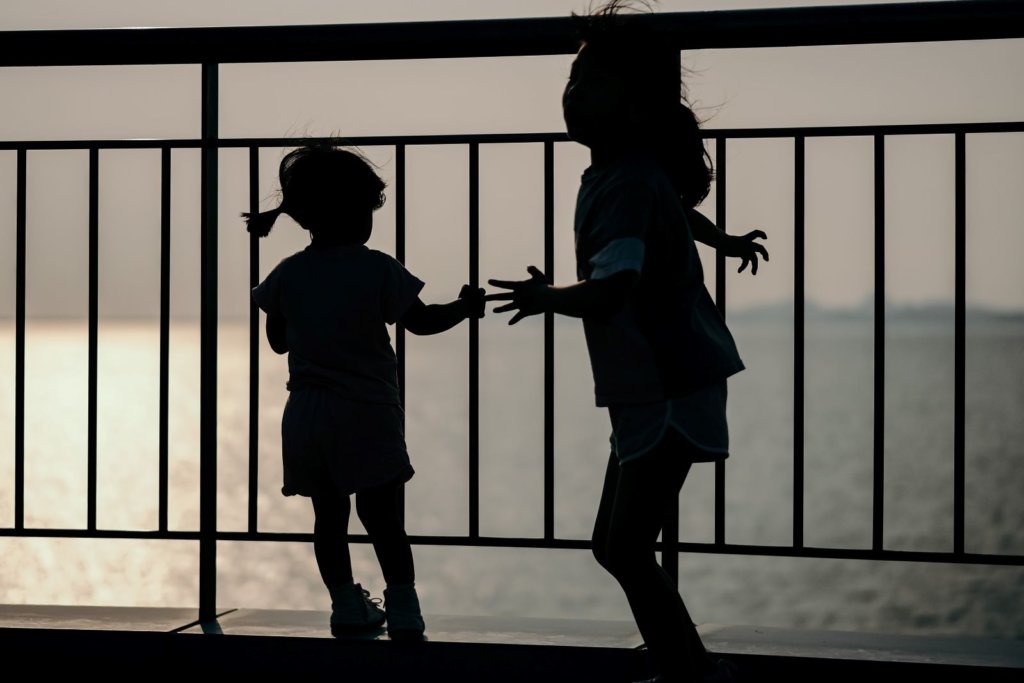
This picture felt like a good mix of imprisonment but also love. Photo by insung yoon on Unsplash
Actions have consequences, for better or for worse. What I notice in telling this story is some glee. My response is, “Good. You got what you deserved.” But sharing that I also feel a pinprick of discomfort because it’s mean-minded. I want to see people punished for their crimes but my spiritual teacher also says we don’t have the right to punish someone we do not love, and furthermore, the amount of punishment meted out must not exceed the amount of love we feel. Yikes. Why is that?
If life is about love, about seeing the divine in everyone, it makes sense that all actions are to be taken with that spirit. If I punish someone out of spite, it creates a feeling of vindictiveness. My mind degrades and the person punished also likely feels resentment. Instead, punishment should be corrective in nature. My spiritual teacher also says, “If a system of corrective measures is introduced, criminals, whether they were deeply involved in the crime or not, will have no reason to complain against anyone. Although there may be flaws in the judgment, it will not harm them in any way. A person who is definitely guilty will benefit from a system of corrective measures, and even a person who is not guilty will benefit from such a system.”
I know I’m being challenged right now to maintain my feelings of love, but what softens my heart is thinking power-hungry people are sick. Those who don’t care one iota about anyone other than themselves are mentally ill. Those who seek to divide others, to promote inferiority and superiority are unwell. As a society, we must take corrective measures – I’m not suggesting we throw our hands up in the air and excuse anyone’s behavior – but can we continue to see God in everyone, especially people we don’t like? That’s the practice anyway.
I dream of a world where we realize the universe will restore balance without any input from us. A world where we recognize actions have consequences for better or for worse. A world where we try to correct others instead of punishing them. A world where we see God in everyone, even people we want to punish.
Another world is not only possible, it’s probable.
When I’m going through a tough time, or the world around me is challenging like it is now, I don’t derive comfort from hearing, “This, too, shall pass.” I know some people do and I’m glad, but for me, when I hear, “This, too, shall pass” my response is, “When? Can you give me a timeframe? An estimate even?” But no one really knows, except for some stellar psychics, but I’ve never met any of those. If you have, can you give them my number? I have some questions.
Instead, what comes to mind right now is a quote that is misattributed to Winston Churchill: “If you’re going through hell, keep going.” Because honestly, what other choice is there? When life is grim, when smoke is so thick you can’t see across the street, when the sun is blocked from view and you think you’re on another planet the sky is so orange, what do you do? You keep putting one foot in front of the other over and over again until things change. And the only way I know how to do that is to borrow from another cliché prevalent in 12-step communities: one day at a time.
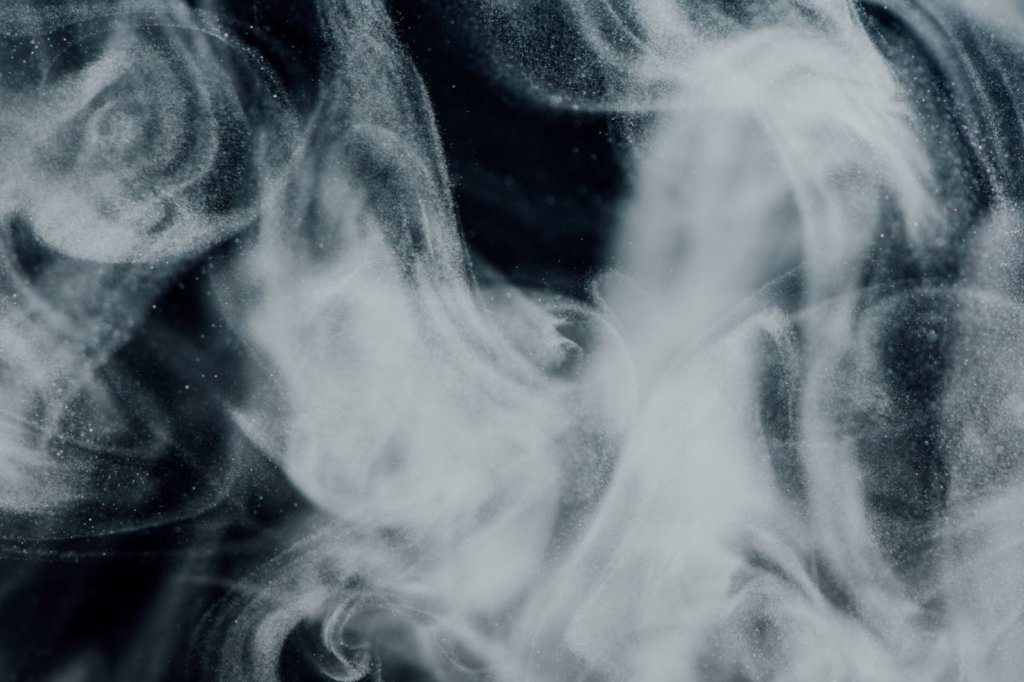
Not a fan of the smoke, but this is also an expression of Spirit. Photo by chuttersnap on Unsplash
I read an article in the Atlantic recently by Molly Jong-Fast that sums up this principle beautifully. She wrote:
Look, I’m as obsessed with “getting back to normal” as everyone else is, but I try not to worry about when that will be possible. I’ll lose it if I think in terms of hanging on until there’s a vaccine. Some people may find it helpful to tell themselves, It’s not forever. It’s just a few months. In my experience, though, when there’s no firm deadline for the end of an ordeal—and no one really knows when the pandemic will end—it’s better to focus on getting through the day. Life isn’t lived two weeks from now, or two months from now. Life exists in the moment and nowhere else.
Life exists in the moment and nowhere else. That means I can’t think about when it will rain, when I can open my windows again, when I can step outside without an n99 mask designed to filter out smoke. Instead I can focus on the moment, like the carrot I’m munching on while I type this, or my flowers swaying in the breeze.
I can also get quiet and touch the inner calm, the inner strength that lies within me and within everyone. The point of my spiritual practice is not to run away from the world, to search for a better, happier place, but instead to recognize the divinity present here, now. My spiritual practice affirms over and over again that I am an expression of an infinite, loving consciousness. That this body, this mind, this world is an expression of Spirit both beautiful and terrible.
My spiritual teacher says “God” is an acronym that stands for Generator, Operator, and Destroyer. That means God is not only the beauty in the world but also the ugly. And the reality is the cycle of life is a never-ending rhythm of creation, operation, and destruction. I don’t like it, I don’t wish for it, I still act responsibly with regards to my life and the lives of others, but can I have some perspective? Can I remember that God is here, too, in this hell? That’s the work anyway.
I dream of a world where we keep going in the most hellacious of circumstances. A world where we continue to take each day as it comes doing the next right action and then the next. A world where we remember God is not only the wonderful, but the terrible. A world where we realize that in the horrible, Spirit is there, too.
Another world is not only possible, it’s probable.
I didn’t think I was going to write about this today but the topic has been at the forefront of my mind so here we are. Perhaps a little naïvely, I thought after my sleep got sorted the rest of my health would fall into place like dominoes lining up with one another. While it’s true being able to sleep well has made a huge difference in how I feel every day and how much energy I have, it hasn’t affected what’s going on with my digestion.
I notice even saying that my stomach tightens a little. I have some shame about my health conditions like they’re my fault, that I’m to blame. I define shame as the feeling on a fundamental level that there’s something wrong with me, whereas guilt is the feeling I did something wrong. That means when it comes to my health, a part of me thinks I’m messed up, there’s nothing I can do about it, and it’s all my fault.
When I mentioned this to my therapist he said, “Wait, so you don’t think that anyone who experienced your particular life circumstances and conditions would have the same problems?” Hearing that kicked some things loose and reminded me the body responds to stimuli. And furthermore that the trauma I’ve experienced in my life is always running in the background because it’s stored in the central nervous system. We used to think trauma was stored in the brain as a memory, but the latest research shows trauma is stored in the body. You might have heard of the book The Body Keeps the Score, which is all about this.

The body is not a machine as much as we like to pretend otherwise. Photo by Daria Litvinova on Unsplash
When it comes to my own trauma, I want to minimize it or brush it aside because it’s not as bad as someone else’s. I’m very aware of my own privilege and that means I compare myself to others and know my life could be vastly more difficult. Because I don’t have XYZ trauma, it means I operate as if the trauma I did experience doesn’t matter. Ouch. I am crying as I express that. The reality is, trauma is trauma. Pushing it away or minimizing it doesn’t solve anything.
I’ve cried off and on this past weekend as I’ve gotten in touch with how much the events of my life have affected me, and specifically my physical health. I’ve spent so much time in survival mode, putting one foot in front of the other, that I haven’t absorbed the impact of trauma specifically on my body. It happened in the past so it doesn’t matter, right? Wrong. Because trauma is alive in the body. It’s alive in my body. It’s manifesting itself in my digestive system which is in charge of what? Processing. I haven’t fully processed all the traumatic events in my life so it makes sense the part of my body that’s in charge of processing would also be affected.
In his book The Body Keeps the Score, Dr. Bessel van der Kolk said, “As long as you keep secrets and suppress information, you are fundamentally at war with yourself…The critical issue is allowing yourself to know what you know. That takes an enormous amount of courage.”
What I’m knowing right now, what I’m sharing right now, is the trauma I’ve experienced has affected me. It’s left a mark on my body. No amount of comparing myself to other people, to minimizing what I’ve gone through, or brushing it aside will change my past. Just as it was naïve to think getting good sleep would solve all my problems, it’s also naïve to think enduring traumatic events would leave me unscathed not only psychologically but also physically. As Dr. van der Kolk and many others have said, awareness is the first step in moving toward a solution. This is me, deepening my awareness.
I dream of a world where we remember the body and mind are linked. A world where we understand trauma lives in the body and it’s important to take that into account where our health is concerned. A world where we treat not only other people with love and care, but also ourselves.
Another world is not only possible, it’s probable.
I’ve written before about how Donald Trump represents our collective shadow in terms of racism and xenophobia, but he also represents the shadow side of the internet. His latest move withdrawing from the World Health Organization (WHO) is like unfriending someone on Facebook because you don’t like what they’re saying.
First off, I want to say I think the “unfriend,” “block,” and “mute” features on social media are important and necessary because no one should be subjected to abuse, but also there can be an element of using those features to create confirmation bias or insularity. These days you don’t have to listen to anyone who disagrees with you. You can ignore what other people say with relative ease. I notice this in my own life – whenever I post about Black Lives Matter on my professional Instagram account, I lose followers. That’s OK, I’ll keep posting about it, but it speaks to the shadow side of the internet.
We get to intentionally create our reality, our communities, and connect with like-minded individuals, which is great! But it can also lead to a disconnect from reality. If I only surround myself with people who think the Earth is flat, of course that will be what I believe. The statistics vary, but anywhere from 2% to more than 20% of people believe the Earth is flat! Even if it’s 2%, that’s a huge swathe of people. The notion continues to gain momentum because it has support from numerous Facebook groups and Youtube channels. The way we human beings determine what’s real is by consensus, by checking in with others. “Did you see that UFO zipping across the sky? No? Well I must have imagined it then.”
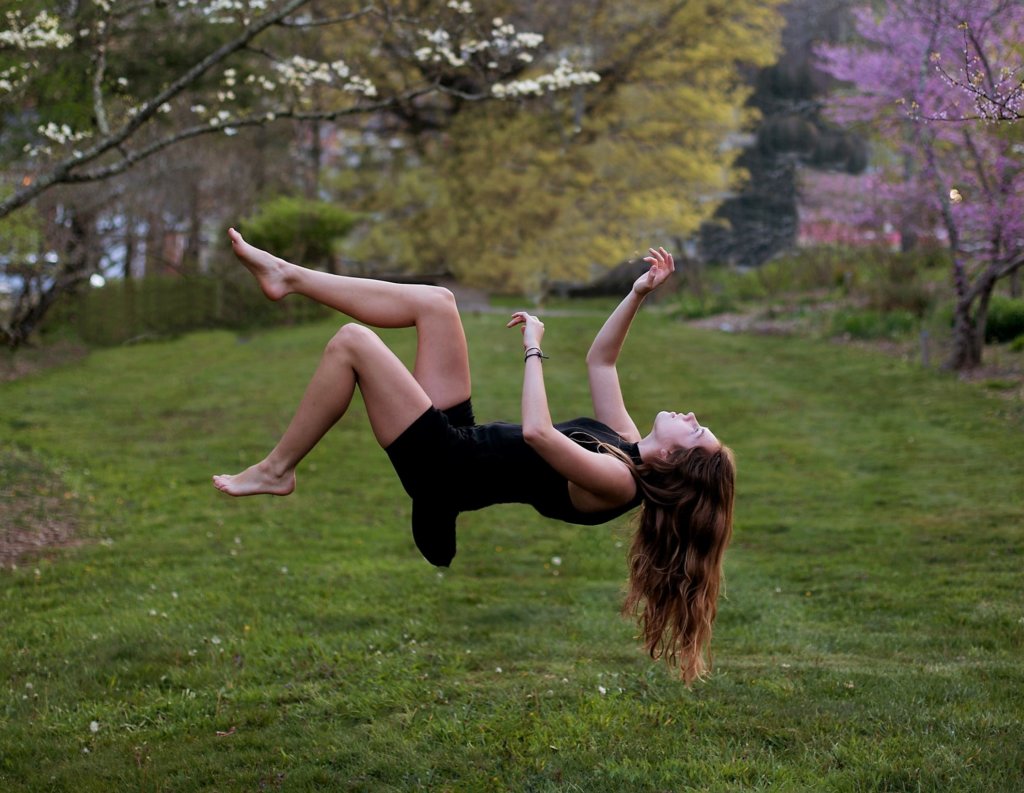
Is she actually floating?!? Photo by Ashley Bean on Unsplash
Because of the internet, we can find people who support our version of reality and that’s what Donald Trump does. How ironic that a “reality” TV star has no sense of consensus reality. He’s so used to creating the truth and now he gets to broadcast his reality to the world. He speaks to the seductive idea that the truth can be whatever you want it to be. It can feel empowering to say, “My truth is my truth” and ignore what other people say, especially if a person has experience with not being heard or believed. However, I’m going to quote Stephen Dinan, CEO and founder of The Shift Network, an alternative media company. He writes:
“The good aspect of claiming our own internal truth and authority – which human potential teachings typically promote – turns ugly and becomes a descent into ignorance when people stop respecting the hard-earned disciplines behind so many mainstream endeavors from science to journalism to medicine. Once we stop respecting expertise and the disciplines that inform that expertise, we put ourselves on a path to ignorance.
Precisely. When we tune out all other voices, we become ignorant. It’s what Donald Trump is advocating by withdrawing from the WHO. It’s what he’s advocating when he says people should stop getting tested for COVID-19. Because if you stop getting tested that means you don’t actually have the virus, right? Well, no. It just means that you can pretend everything is fine and delude yourself.
I can tie this in to my spiritual practice because on the one hand, my spiritual teacher advocates for self-realization, for developing intuition and connection to spirit so the internal reality is important. But on the other hand, he also urges us to have discernment, to use our brains when we’re in the world and reject what is irrational. In fact, he says, “Even if a young boy says something logical, it should be accepted. And if the Supreme Creator Brahma says something illogical, it should be rejected as rubbish.”
I dream of a world where we use our brains. A world where we understand our own version of reality is not the only version. A world where we realize it’s important to look at multiple perspectives and take into account what other people are saying. A world where we accept what is logical and reject what is not.
Another world is not only possible, it’s probable.
I have a tendency to idealize people, especially leaders. Not government officials because their peccadilloes are well documented, but other leaders like Gandhi and Dr. Martin Luther King, Jr. However, everyone has their flaws. Gandhi was a racist and had some weird, perhaps even abusive, sexual behaviors. Dr. King cheated on his wife. Did both of these men contribute to society and deserve recognition for that? Absolutely. But were they perfect? No.
That’s quite common actually for revolutionaries. I’m going to quote Rutger Bregman from a super-long article in The Correspondent. He read a book by British journalist Helen Lewis called Difficult Women that chronicles the history of feminism in Great Britain. In the book she makes the point many revolutionaries are difficult. Progress tends to start with people who are obstinate, obnoxious, and deliberately rock the boat. Also, doing good work in the world doesn’t mean a person is perfect.
Bregman writes: “Lewis’s criticism is that many activists appear to ignore this complexity, and that makes them markedly less effective. Look at Twitter, which is rife with people who seem more interested in judging other tweeters. Yesterday’s hero is toppled tomorrow at the first awkward remark or stain of controversy.”
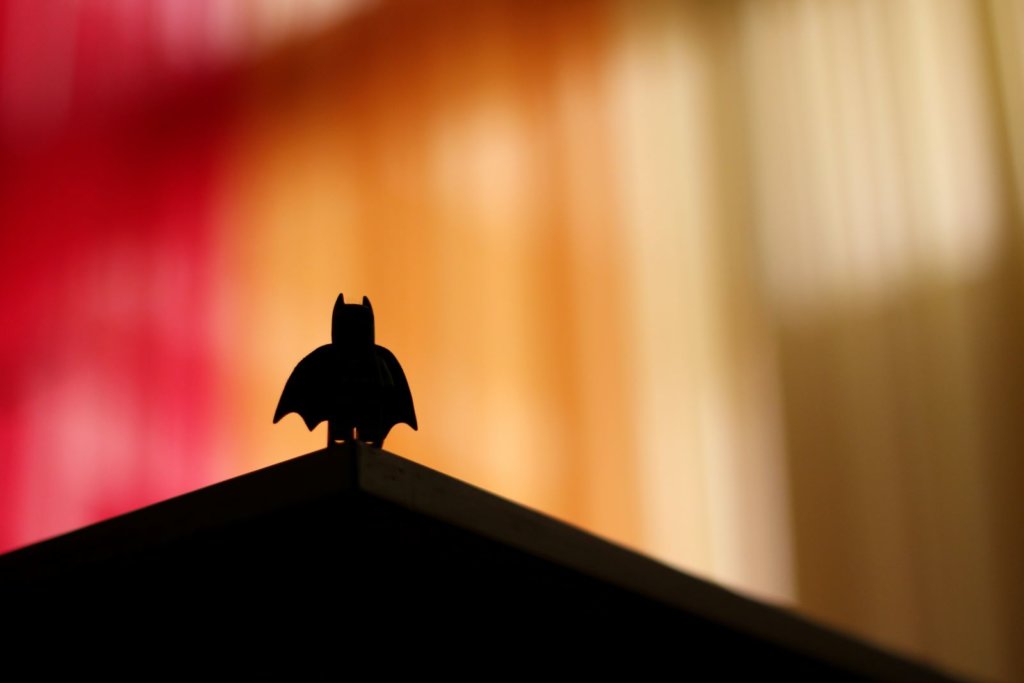
I know it’s a little silly to use a Batman figurine to illustrate this post, but Batman is a human and he’s a hero so. . . Photo by Ali Kokab on Unsplash
I’m reminded you don’t have to be perfect to make great change in the world and in fact, I take heart in that regular people with passion do that all the time. As we’ve recently celebrated Pride, I’d like to mention one such person: Marsha P. Johnson, a Black trans woman, who played a key role in the fight for LGBTQ equality. Three passionate Black women making a difference today are the co-founders of Black Lives Matter: Patrisse Khan-Cullors, Alicia Garza, and Opal Tometi.
You obviously don’t have to be a saint to be a leader, to be a spiritual revolutionary. My teacher says true leaders or spiritual revolutionaries work to achieve progressive changes for human elevation on a well-thought, pre-planned basis, whether in the physical, metaphysical, or spiritual sphere and they follow an ethical code. That ethical code includes things like not intentionally harming others, practicing benevolent truthfulness, not stealing, sacrificing to serve others, etc.
Today I am reminded that you and I can also be leaders in our own right, in our own way. If we are working to elevate humanity and doing our best to be ethical people, we fall into that category. We may never have the notoriety of any of the leaders I mention in this post, but we’re still leaders and the work we’re doing still matters. We need different people playing different roles to create change.
I’m going to end with another quote by Bregman here. He says:
“Our inclination – in talk shows and around dinner tables – is to choose our favorite kind of activism: We give Greta Thunberg a big thumbs up but fume at the road blockades staged by Extinction Rebellion. Or we admire the protesters of Occupy Wall Street but scorn the lobbyists who set out for Davos.
“That’s not how change works. All of these people have roles to play. Both the professor and the anarchist. The networker and the agitator. The provocateur and the peacemaker. The people who write in academic jargon and those who translate it for a wider audience. The people who lobby behind the scenes and those who are dragged away by the riot police.”
I dream of a world where we all work together to make a better society. A world where we recognize we all have the capacity to be leaders. A world where we remember we don’t have to be perfect to make a difference. A world where we see ourselves for the heroes we are.
Another world is not only possible, it’s probable.
While watching a movie that addressed publishing the Pentagon Papers, what struck me the most is multiple presidential administrations maintained U.S. involvement in Vietnam because they didn’t want other countries to lose respect for us. Setting aside how screwed up that is, I can’t think of a single country that still has respect for the U.S. OK, maybe Brazil, which also has a fascist leader, but otherwise the pickings are slim. These days Trump doesn’t seem to care one iota what other countries think of the U.S. and instead only cares about appealing to his base: primarily white, Christian men who are racist.
I want to address that term, racist. Robin DiAngelo, author of White Fragility, said, “We have to stop thinking about racism simply as someone who says the N-word.” Meaning it’s possible some Trump supporters (but not only his supporters) are racist but think they aren’t because they don’t use the N-word or they have friends who are people of color. Racism is a system that benefits white people – it’s prejudice plus power. And white people who want to maintain the status quo are supporting racism.
Trump does not fall into the camp of someone who is unaware he’s racist; he’s blatantly so. One only has to look most recently at his decision to hold the now-moved rally in Tulsa on Juneteenth as evidence of that. If you don’t know, Tulsa is the site of one of the worst incidents of racial violence in the nation’s history. In 1921, hundreds of black people were attacked by a white mob that looted and burned many black-owned businesses and homes in the Greenwood District, a neighborhood that was then known as “Black Wall Street.”
Trump’s racism is calculated and it’s precisely why he’s in power. Back in 2017, the Atlantic published an excellent essay by Ta-Nehisi Coates, an excerpt from his book We Were Eight Years in Power. Coates said, “In recent times, whiteness as an overt political tactic has been restrained by a kind of cordiality that held its overt invocation would scare off ‘moderate’ whites. This has proved to be only half true at best. Trump’s legacy will be exposing the patina of decency for what it is and revealing just how much a demagogue can get away with.”
Coates said Donald Trump is the first white president because he “moved racism from the euphemistic and plausibly deniable to the overt and freely claimed.”
It was true in 2017 and it’s still true now. How much can a racist demagogue get away with? Especially when he’s no longer pretending to be a decent man, to care about what other people or other countries think of him? The answer as we’ve seen is quite a lot.
A part of me wants to fast forward to 2021 when I sincerely hope Donald Trump is out of office, but the reality is, what Trump embodies doesn’t go away with a new president. He’s merely a symbol of what’s been here all along. It’s up to us to create a more just society and also to remind elected officials they work for us and not the other way around.
I’m heartened by the current protests because that dynamic is playing out. When the Minneapolis City Council unanimously passed a resolution to replace the police department with a community-led public safety system, it was a signal that public outrage can make a difference.
There is power in the collective, both good and bad. We can either use our collective power to maintain the status quo, to support inequality of all kinds, or we can do something different. We can band together to create a world we’d like to see. I, of course, want that better world.
I dream of a world where we use our collective power to remind the government they work for us. A world where we dismantle racism as well as all other -isms. A world where we win back the respect of other countries because we’re operating with respect. A world where power returns to the hands of the collective, where it belongs.
Another world is not only possible, it’s probable.
Right now it’s Hanukkah, which is a holiday I celebrate because I’m Jewish. There’s a part of me that feels nervous publicly stating I’m Jewish given the current rise of antisemitism. But then I remind myself people already know I’m Jewish. I’ve never hidden that before so why would I start now? And in fact, that’s precisely the story of Hanukkah.
Some people think of Hanukkah as the “Jewish Christmas” because hello, we live in a capitalistic culture so it’s all about the gifts, right? Other people vaguely know Hanukkah as a celebration of oil lasting for eight days. That legend was tacked on later to make Hanukkah seem more miraculous. In actuality, Hanukkah is the celebration of people unifying against oppression and winning.
Judah and the Maccabees revolted against Syrian King Antiochus who enacted a series of harsh decrees against the Jews, including forcing them to give so much of their crops to the Syrian ruling class, the Jews had trouble feeding their families. Jewish worship was forbidden; scrolls were confiscated and burned. Sabbath and the dietary laws were prohibited under penalty of death. The small group of Jewish rebels fought against an army of thousands of men and won. How did they win? According to my rabbi, Michael Lerner, they won in part because they believed there is something about the universe that makes such struggles winnable.
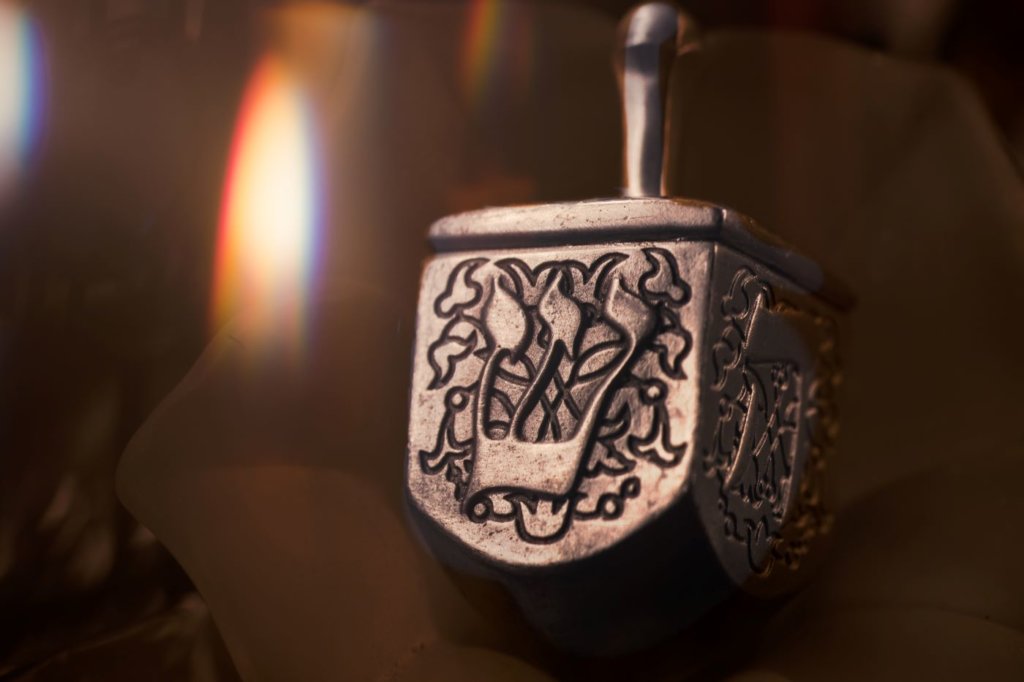
In case you didn’t know, this image shows a dreidel. It’s used in a game Jews play on Hanukkah. Photo by Robert Zunikoff on Unsplash
In a Hanukkah message, he wrote that “something,” that force, is celebrated when we light candles for Hanukkah or when Christians light candles for Christmas.
“Hanukkah is not just about having a response to the consumption craze around Christmas, it is about affirming a different worldview, a hopeful worldview. [It’s] about replacing cultures of domination with a culture of love and justice,” Rabbi Lerner wrote. “[Hanukkah is also about] recognizing that alternative is not yet fully articulated in the Jewish world and needs all of us to make it clearer not only to the larger world, but to our own communities, synagogues, and Jewish organizations.”
This Hanukkah I’m reminded of what it means to be Jewish: to struggle and to overcome. To be a minority fighting for justice. To join other minorities in doing the same. This Hanukkah I’m also reminded we can win. It seems grim or even impossible that we can wrest power from the wealthy elite hellbent on destroying us all for their own gain. It seems daunting to dismantle racism, sexism, homophobia, and other prejudice, but it can be done. A small but mighty few can accomplish just that.
To paraphrase my spiritual teacher, the strength of five good people is more than the united strength of a hundred immoral people. It also echoes the famous Margaret Mead quote: “Never doubt that a small group of thoughtful, committed citizens can change the world; indeed, it’s the only thing that ever has.” Let’s continue to be thoughtful, committed, organized citizens changing the world. Let’s remember battles that seemed unwinnable have been won, and in fact, that’s what Jews across the world are currently celebrating.
I dream of a world where we recognize there is a transformative force in the universe that makes liberation possible. A world where we recognize a small but mighty group of organized people can overthrow authoritarian regimes. A world where we band together, letting our collective light shine and say “no” to the people who try to keep us down.
Another world is not only possible, it’s probable.
It’s ironic the title of this post is “Stronger than We Seem” when right now I feel weak. Subsisting off of powder and water will do that to a gal. However, when I looked through old blog posts to recycle, this is the one that jumped out at me. A lot has changed since I wrote it in September 2017, but the message is still a relevant one. No audio because I couldn’t manage it.
“You are braver than you believe, stronger than you seem, smarter than you think, and loved more than you know.” – A.A. Milne
It seems to me right now we’re all being called to become our best selves. We’re being asked to stretch and grow in ways that are uncomfortable and unfamiliar. Milne’s quote reminds me so often I sell myself short and there is more courage, strength, intelligence, and love within me than I acknowledge.
There is some not-fun stuff going on in the world, as per usual, and the challenge for us is to rise to the occasion. For me personally, that means getting in touch with my inner power. Often I want other people to do the heavy lifting in my life. I want them to “fix me,” to “make me better,” to “have all of the answers,” or in some way allow me to play the damsel in distress. The place this shows up the most is with my health.
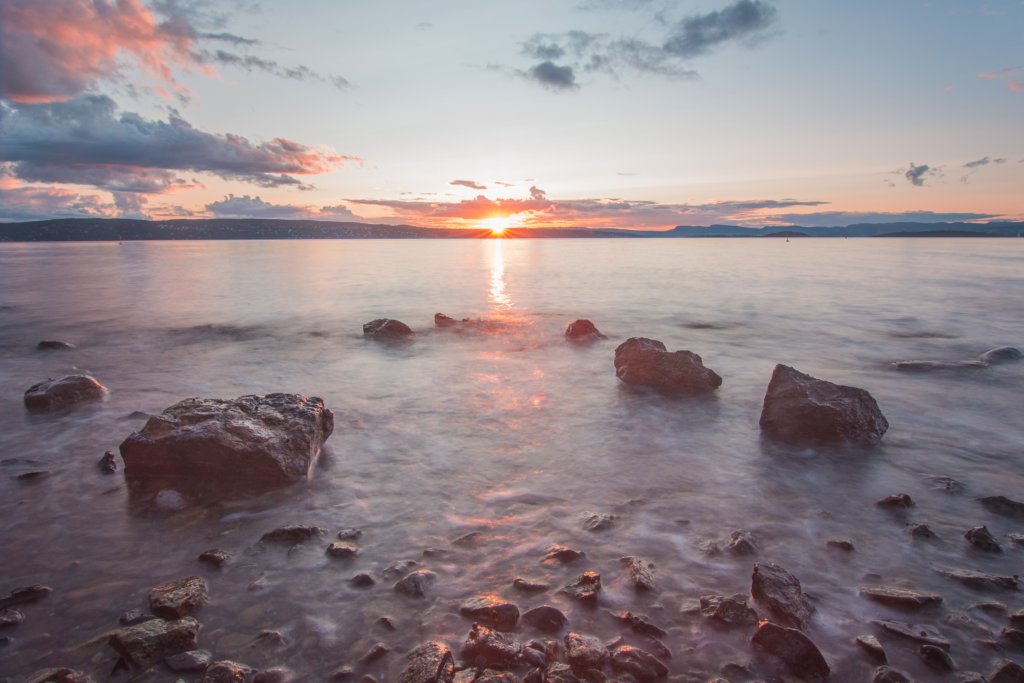
There’s more beneath the surface. Photo by Muhammad Shahzad on Unsplash.
I’m writing a long facebook note about everything my chronic illness has taught me, but for the purposes of this post I want to focus on empowerment. The dynamic that has shown up with my health is I approach doctors and healers not as partners in my path to wellness, not as people who help me to heal myself, but rather as wizards who will magically cure me without any effort on my part. I realize awe-inspiring stories of magical healing happen every day, and I so wish I could be one of those people, but thus far the universe has said to me, “Nah gurl, you gotta be your own hero and rescue yourself.”
I came to this conclusion after literally trying all the things Western and Eastern to heal my physical body and not seeing much in the way of results. A friend of mine posted about a book called Energy Medicine on Instagram and even seeing the title sparked curiosity within me to explore deeper. After the eclipse, an intense and passionate desire bubbled up within me to start reading the book. It’s a synthesis of all the modalities I have familiarity with – acupressure, energy meridians, chakras – and describes them in a practical way. The book explains why certain spots on my body are tender, or why I instinctively cradle my stomach. More importantly though, it’s empowering me to heal myself.
It’s early days, but even if I don’t see the results I’d like, it seems like a valuable lesson to remember I have power and magic within me. That I am capable of more than I think I am. That I don’t have to outsource everything to other people. This post is all about me, but the principle applies to the broader society as well. How many of us think what’s happening is “someone else’s” problem? Or that “someone else” will take charge? And how much of that is based on insecurity or inferiority?
My spiritual teacher says over and over again, “You should behave with every created being, every human being, in such a way that neither a superiority complex nor an inferiority complex develops in you, or in those with whom you interact. … A person must not suffer from an inferiority complex, because that person and his or her friends and siblings are all the progeny of the same Progenitor. They come from the same origin.”
That means I’m just as capable as anyone else. That means the same power within others is also within me. And vice versa.
I dream of a world where we recognize we all have inner power and strength. A world where we remember no one is superior or inferior to us. A world where we realize we are braver than we believe, stronger than we seem, and smarter than we think.
Another world is not only possible, it’s probable.
Belonging is on my mind a lot these days. I think in part it’s because I’m still unemployed. I interview somewhere and they assess whether I’m a good fit for them and I assess whether they’re a good fit for me. Thus far nowhere has been a match. It’s tough to be rejected so many times, especially when the stakes are so high. The way our society is set up you have to have money to survive. I realize there are workarounds with bartering and such, but my electric company isn’t keen on receiving an astrology reading in lieu of payment for my electric bill. So. Gotta have that green.
You know how some people talk about eating rejection for breakfast? Or how some authors kept all their rejections from publishing houses as an “I’ll show them” gesture? Yeah, I’m not one of those people. Each rejection stings and with each rejection I take it as a personal affront there’s something wrong with me. “What did I say wrong during the interview? What was bad about my résumé or writing sample?” Everything becomes about me and a reflection of how I’m terrible.
This shame-based place culminates in feeling like an outsider because if I’m wrong then someone else is right. There must be a “correct” way to do things, right? Except what keeps knocking around in my head is my post from last week — how the universe comes to know itself through me. If that’s true, can I truly be wrong or right? Can I really be an outsider?
While watching a youtube video of Charles Eisenstein talking about the burning of the Amazon, he said there’s a larger intelligence that knows where to put you in its healing. As soon as he said that, my eyes welled up because it reminded me my life is so much bigger than me. Maybe I’m right where I am meant to be, even if that’s jobless. And also my placement at a company is not only about my skills and talents, it’s also about where I’ll be of the most use, the most service, the most healing.
Where I fit, where I belong, is not only where I want to be, what I want to do, it’s also about the universe or my higher power. Where does higher power think I should be? Where does the universe think I’ll be of most use in coming to know itself and also for its healing? I belong where I am. If I’m here, now, that’s where I’m meant to be. It’s a hard pill to swallow because sometimes the present moment is painful but that doesn’t mean something is out of sync. After all, just think of childbirth.
I wish I could say after writing this post I suddenly feel completely at home and at ease in my self, my body, my life, but I don’t. What I can say though is I feel marginally better that’s good enough for me.
I dream of a world where we realize we’re exactly who we’re supposed to be and exactly where we’re meant to be. A world where we realize the universe puts us where we’ll best aid in its healing and that means even if it doesn’t feel like it, we still belong.
Another world is not only possible, it’s probable.
A friend of mine shared a quote recently that keeps kicking around in my brain. In the book Journey of the Universe, Brian Swimme and Mary Evelyn Pope write:
“[J]ust as the Milky Way is the universe in the form of a galaxy, and an orchid is the universe in the form of a flower, we are the universe in the form of a human. And every time we are drawn to look up into the night sky and reflect on the awesome beauty of the universe, we are actually the universe reflecting on itself. And this changes everything.”
We are the universe reflecting on itself. We think we are separate, apart, autonomous beings — and we are — but at the same time, we are also the universe. We are the universe in the form of a human. I wrote about that a while ago, the notion that we’re all stardust, but my friend takes that concept a bit further. In essence, the tenet of our spiritual practice is that the universe is coming to know itself through us.
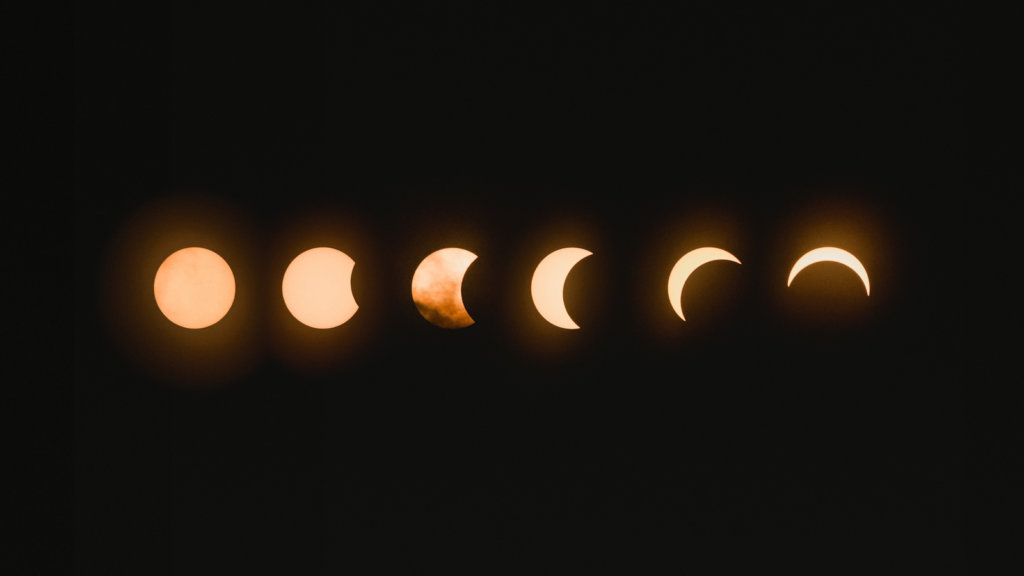
I like this picture because it’s cosmic and it shows an unfolding process. Photo by Mark Tegethoff on Unsplash
I’m not sure how to expound on that concept. It’s not easily explained and instead is more of a feeling or worldview. It’s the recognition I am me — a woman, a writer, etc. — but I am also more than me. There’s a “me” here that will live on after my death. Because I believe in reincarnation that means “I” was once a single-cell organism, then moved up the evolutionary chain to become a plant, then an animal, then a human. As a human, I have made a conscious choice to know the divine, but because I’m already made up of the universe, made up of stardust, that’s another way the universe is coming to know itself through me. I am a conduit, a channel, a vessel for the universe to express itself. We are all of us the universe but we’re wearing different costumes.
I hear frequently that “the world needs the special gift that only you have,” or that we all have our own unique genius. Usually I roll my eyes because it sounds like a trite throwaway, but when I think about the universe knowing itself through me, it takes my ego out of the equation. I’m not sure that makes a lot of sense but in essence I become aware of something bigger than me. My life becomes about more than what I want, what I don’t want, what I have, what I don’t have. My life becomes a spiritual endeavor where I’m dancing and playing with the universe as a co-conspirator. And eventually that play will lead me back to the source of all creation. In the meantime, the life I’m living is like a rose in bloom. Each petal, each experience unfolds and contributes to the rose in its entirety.
I dream of a world where we realize there’s more to us than we’re aware. A world where we recognize the universe knows itself through us. That as much as we think we’re interacting with the world, it’s also that the world is interacting with us. A world where we recognize with each experience we continue to unfold.
Another world is not only possible, it’s probable.
